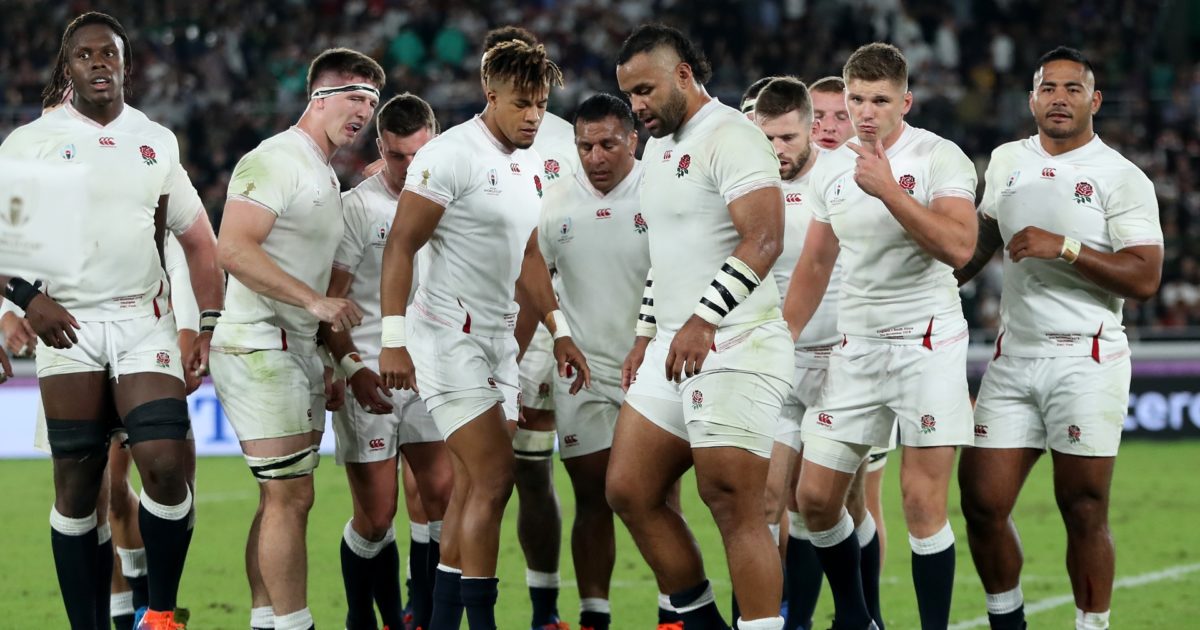RFU and Premiership issue statements after fresh fan restrictions plunge England into financial abyss

RFU chief executive Bill Sweeney has claimed that the newly confirmed tightened restrictions on sports events in England this winter will massively impact on his organisation’s ability to fund the sport.
England had been hoping to accommodate a crowd of 20,000 for their October 25 match against the Barbarians, paving the way for five-figure crowds to attend the following month’s Test matches at Twickenham in the one-off Autumn Nations Cup.
However, fresh government measures will now result in sports stadiums remaining closed to fans for the foreseeable future, placing increased financial pressure on sports organisations such as the RFU.
A statement from Sweeney read: “The RFU would like to thank the Secretary of State and Sports Minister for convening a sports industry discussion immediately after the Prime Minister’s statement with the objective of finding solutions to support sport.
“We understand the difficult balance government faces in controlling the spread of the virus while enabling parts of society and the economy to remain open. We all need to follow the advice given and play our part in helping to get the virus under control.
English setback https://t.co/N38bwgAvs2
— RugbyPass (@RugbyPass) September 22, 2020
“No crowds at Twickenham for the Autumn Quilter Internationals, the Premiership in October or the Championship and community game will, however, have severe consequences for the sport in England across all levels.
“With no fans this autumn we will see a £122million reduction in revenue resulting in a loss of £46m and with no fans for the Guinness Six Nations, we will see a £138m reduction in revenue with a loss of £60m thereby preventing investment in areas such as the women’s elite game and community rugby.
“Premiership and Championship Clubs will face significant financial hardship. Our community rugby clubs, many of which run grounds at the heart of their communities are under threat. Without crowds and league games, community rugby will lose an estimated £86m in revenue this season.
“The RFU has already made difficult decisions in significantly reducing our 7s programme, reducing investment across all areas of the game, implementing salary reductions and making 140 people redundant. All of these decisions will have a significant and lasting impact on rugby.
“From the outset, we have been clear that an autumn without crowds would leave us with little choice but to approach the government for financial help. Unfortunately, we are now in that position. Without support we are in danger of clubs at the heart of communities across England, as well as players and volunteers, disappearing forever.
“Sport is vital for people’s physical and mental health, both of which have never been as critical as they are now. We appreciate the very difficult challenge that the Government faces and Government acknowledges the importance of sport to communities and society as a whole and the need to safeguard our future.”
Premiership Rugby chief executive Darren Childs added: “We can confirm we did hold a very positive meeting with the secretary of state, Oliver Dowden, today and there was a clear understanding of the effects that today’s news will have across the sports sector, including rugby.
“However, the announcement that supporters will not be allowed into stadiums for up to six months cuts off crucial revenue for the Premiership Rugby clubs who have already suffered significant financial losses from suspending the season and playing matches behind closed doors since March.
“We believe the lack of supporters in our grounds could cause irreparable damage to our clubs and the communities they serve so must find a way forward to avoid this. As we seek solutions we look forward to working with government on a rescue package for professional club rugby in England and we will continue to seek innovative ways to overcome these challenges to ensure premiership rugby and its clubs have a future.”
Mike Brown says he feels Eddie Jones let him down when he was dropped following the infamous off-field bust-up with Ben Te'o. https://t.co/birlx3wPkm
— RugbyPass (@RugbyPass) September 21, 2020










































































